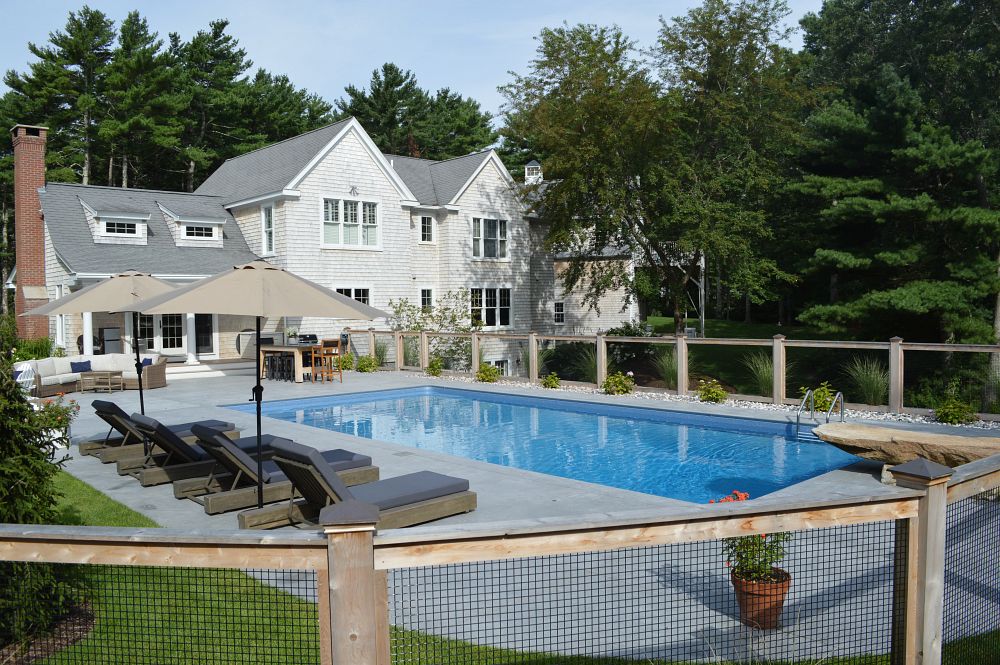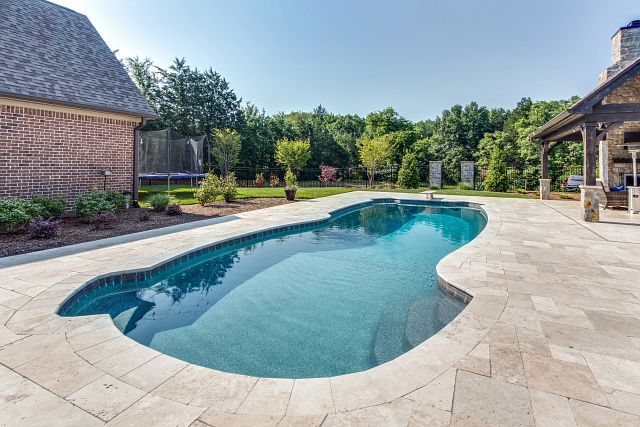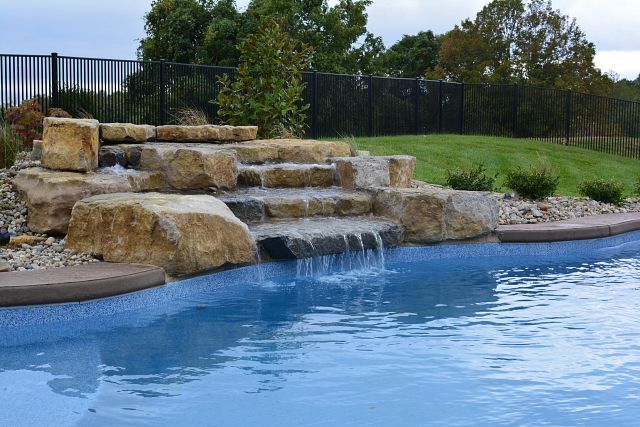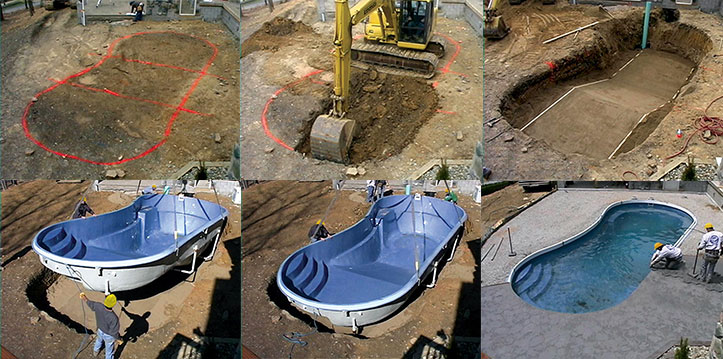If you are a new fiberglass pool owner you surely have heard about how the fiberglass shell of your pool has a gelcoat finish that is nonporous and virtually impossible for algae — as well as other organisms and debris — to latch on to. That knowledge may have you wondering how often you will need to clean your pool. Well, let’s just say that fiberglass pools perform as advertised!
Keeping A Fiberglass Pool Clean
As many experts have observed, a fiberglass pool with a salt sanitation system and an automatic safety cover is about as close to a maintenance-free pool as you could ask for. With its smooth surface deflecting organic assaults and your skimmer and filter doing their part, you will be spending a lot of time relaxing in your lawn chair.
That said, the dream of a completely maintenance-free pool has not yet been achieved. So, you will be doing some cleaning. How often? It’s hard to put a number on it as the factors that add up to a pool needing to be cleaned are different for every installation. How often is the pool used? Do the swimmers wear sunscreen or other lotions? Are there trees nearby? But, if you want a ballpark figure… in most scenarios, you can likely go a few weeks at least without doing a whole lot of cleaning.
When it is time to clean, here are some tips to keep in mind:
- Skim and vacuum your pool as needed. As mentioned above, your skimmer will do a lot of the work, but there will still be debris that avoids that system and has to be removed manually.
- Use the proper cleaners. You should avoid using harsh cleaning solutions, as they may damage your gelcoat or the fiberglass itself. There are cleaners specifically formulated for fiberglass.
- Use soft-bristled brushes. If you do need to give your pool a quick brushing, be sure to avoid stiff bristles, which can scratch the surface if used too vigorously or too frequently.
- Prevent excessive metal levels. When metals like iron and copper reach too high a level in your water, you may start to see staining. A metal chelating agent can help you prevent this problem.
- Ensure proper water chemistry. Check your pH, alkalinity, and chlorine levels regularly and adjust as need to maintain the proper balance.
- Cover the pool when it’s not in use. Whether you use a solar cover or an automatic safety cover, keeping debris out of your pool will make your life easier.
Fiberglass: The Nearly Maintenance-Free Pool
If you’ve got questions about maintaining your fiberglass pool, or are interested in learning more about installing one, don’t hesitate to contact the Latham Independent Builder in your area today. We’re always happy to answer questions from our fellow pool lovers!







Join the discussion